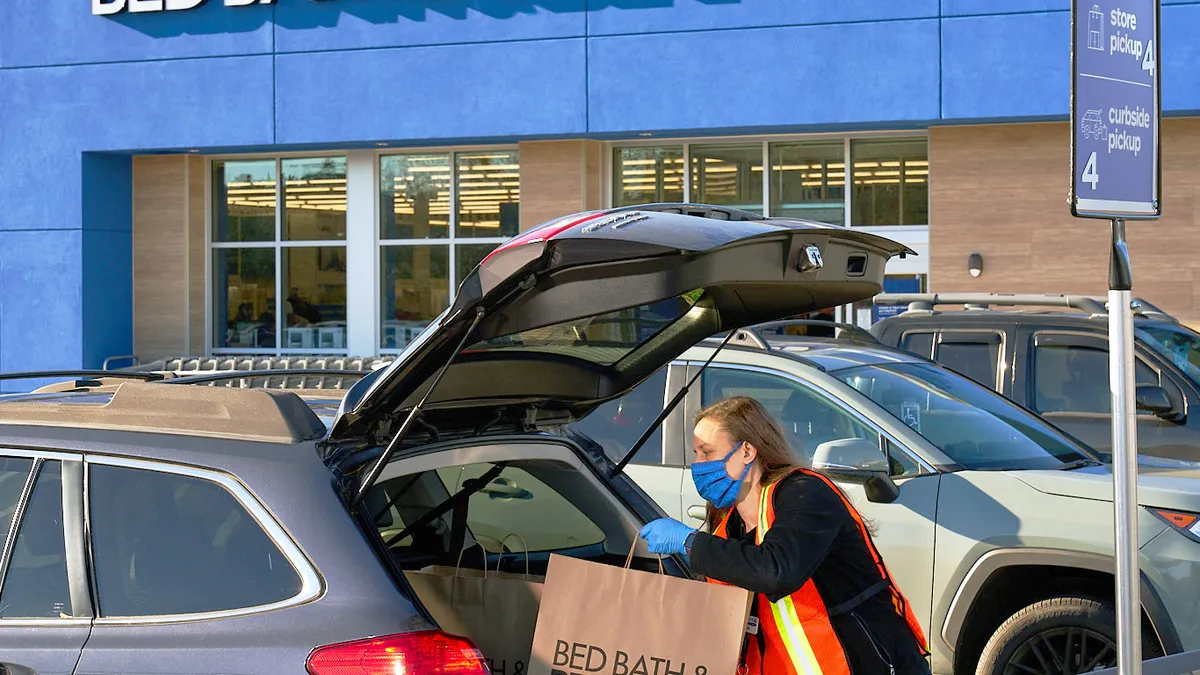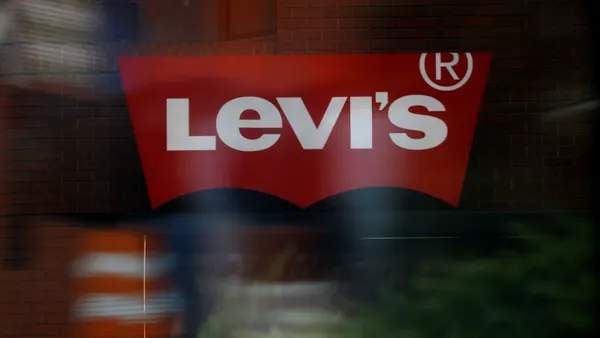Dive Brief:
- Bed Bath & Beyond this week failed to make interest payments on its bonds. After missing the deadline, the company now has a 30-day grace period to make payment, the company confirmed to Retail Dive.
- Earlier this week, the company announced it plans to close all of its Harmon beauty product stores and 87 more of its Bed Bath & Beyond stores. The closures announced this week add to plans announced last summer to close about 150 Bed Bath & Beyond stores.
- The missed payment comes days after lenders sent the company a default notice because it overdrew its credit line. And at the beginning of the year, the company issued a “going concern” notice, warning it may go bankrupt, due in part to negative cash flow and liquidity issues.
Dive Insight:
Bed Bath & Beyond’s inability to make its bond interest payments pushes the retailer closer to bankruptcy.
“We confirm that the company did not make payments to bondholders yesterday and has entered the 30-day grace period,” Bed Bath & Beyond said in a Thursday statement emailed to Retail Dive. “We are committed to updating all stakeholders on our plans as they develop and finalize.”
Bed Bath & Beyond owed over $28 million on about $1.2 billion in bonds, according to The Wall Street Journal. Over the last year, the New Jersey-based home goods retailer has faced a series of setbacks and challenges that have called the company’s survival into question.
“In our view, Bed Bath & Beyond is currently playing for time and is trying to arrange financing and line up potential deals before it heads into bankruptcy,” Neil Saunders, managing director of GlobalData, said in emailed comments.
In its statement regarding the missed interest payment, Bed Bath & Beyond said it continues “to work with our advisors and implement actions to manage our business as efficiently as possible. Multiple paths are being explored and we are determining our next steps carefully and in a timely manner.”
Bed Bath & Beyond also recently closed a distribution center in Lewisville, Texas, which is in the Dallas-Forth Worth area. According to The Dallas Morning News, Bed Bath & Beyond leased the facility in 2016 to fill e-commerce orders.
As a result of the closure, 374 employees will be let go starting March 26, according to a WARN notice and a letter the company sent to the Texas Workforce Commission. “The entire facility will be closing,” the company said in its letter, which also notes that the move “is expected to be permanent.” The distribution center employed people in 19 positions and “the affected employees are not represented by any union.”
The company began 2022 with a dismal earnings report, reporting that third quarter sales fell 28% year over year to $1.9 billion, with a net loss that grew to $276.4 million.
Challenges continued throughout the year. CEO Mark Tritton announced in June that he was leaving the company. He held the role for about two and a half years. Sue Gove, an independent director, was chosen as an interim leader and later was selected as the permanent CEO. About 20% of its corporate and supply chain staff were laid off in August. It also discontinued three of its nine private labels.
In its latest earnings report, sales fell 33% year over year to $1.3 billion. At that time, the company’s operating loss grew by 423% from last year to reach $450.9 million, and its net loss grew by about 42% to $393 million.
The new year brought continued challenges. Just last month, Bed Bath & Beyond, received a Nasdaq delisting warning for failing to file its 10-Q on time with the Securities and Exchange Commission. Also last month, the company announced it was initiating another round of layoffs as part of its turnaround efforts.
Bloomberg reports that attempts to find a buyer in bankruptcy have faltered. That could possibly result in the company’s liquidation. Saunders said the recent efforts are all likely too little and too late.
“Although there is a very slim chance that it could pull a rabbit out of the hat and avoid bankruptcy, we do not believe this would represent a sensible or sustainable outcome,” Saunders said. “Bed Bath & Beyond is a very broken business and repairs can only be made under the protection of a formal process which will permit necessary financial restructuring. While it is reasonable to explore options, the hard truth is that Bed Bath & Beyond is out of time, out of cash, and out of options.”















